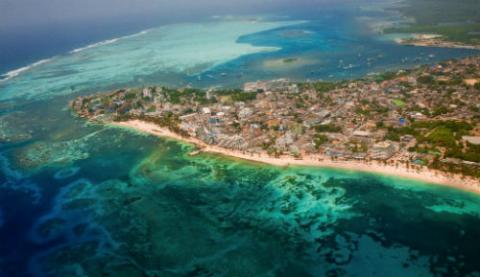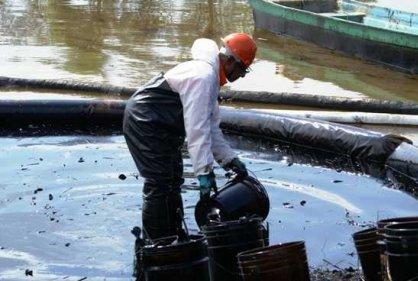By Héctor Herrera, AIDA legal advisor and coordinator of the Colombian Environmental Justice Network, @RJAColombia
Our activities make an impact on biodiversity and the environment every day. The trouble is that our impact is getting increasingly harsher such as with climate change and the extinction of species like the Colombian Grebe (Podicepsandinus, in Spanish).
In Colombia, in response to the above situation, the law has been improved to help protect the environment. The Colombian Constitution, for example, recognizes the importance of protecting the environment and the right to a healthy environment in Article 79, while national environmental laws and in other legal instruments offer more help.
The following are some of the most important legal proceedings in Colombia designed to achieve and protect the right to a healthy environment.
Action of "tutela"
This legal remedy was created with the 1991 Constitution to provide immediate protection for fundamental rights such as the right to life. To protect the right to a healthy environment, the Constitutional Court of Colombia ruled in Sentence T-1527 in 2000:
“While the right to a healthy environment is not considered a fundamental right in our constitution, it is a collective right that can be protected by popular actions. It can be protected through the exceptional mechanism of the action of tutela when actions or omissions by public authorities or private individuals threaten or violate fundamental rights, such as to life, health, physical integrity, or if it affects the public right to a healthy environment. It is thus a fundamental right by connection."[1]
Compared to other legal proceedings, the action of tutela is simpler and swifter in its procedures.
Popular Action
This action is enshrined in Article 88 of the Colombian Constitution. It provides protections for collective interests and rights associated with public health and the environment.
Article 88 was further developed in Law 472 of 1998, whose Article 4 contains a non-exhaustive list of collective rights and interests that can be protected by this legal proceeding. These include the enjoyment of a healthy environment, the existence of ecologic balance and access to public services. The goal of this popular action is to eliminate hazards, threats or violations to collective rights, and restore things to their previous state when possible. This action is preventive, restorative and compensational in nature.

An emblematic case involving popular action was taken by the Corporación para el Desarrollo Sostenible del Archipiélago de San Andrés, Providencia y Santa Catalina (CORALINA) before the Dispute Tribunal of San Andrés, Providencia and Santa Catalina. CORALINA demanded protection for the right to a healthy environment, the existence of ecological balance, and the rational management and use of natural resources as well as the protection and attention to regional species and ecosystems to permit a sustainable development of the community and the environment. The tribunal ruled in favor of CORALINA in a sentence that can be consulted here (in Spansih).
Group Action
This action is contained in Article 88 of the Colombian Constitution and should be considered in combination with Article 79, which stipulates the right to a healthy environment.
Unlike popular action, which seeks to prevent damage to a public right, group action seeks economic compensation for damages caused to a group of people with homogeneous characteristics with respect to the activity that caused the damage.

A symbolic case was the group action taken by peasants and fishermen affected by an oil spill on the Trans-Andean pipeline, which is operated by Colombia’s state oil company Ecopetrol, in 2000 on the Rosario river in Nariño, a southeastern department on border with Ecuador. The oil spill caused serious environmental damage.
For a detailed explanation and better understanding of this subject, you can consult the legal sources for the aforementioned proceedings. These include the Political Constitution, Law 472 of 1998, and the jurisprudence of the Constitutional Court (in Spanish).
[1] Sentence T-1527 of 2000 MP Alfredo Beltrán Sierra.
Héctor Herrera Santoyo

Héctor Herrera Santoyo holds a law degree from the Universidad de los Andes, where he also studied Anthropology and was part of the program Global Justice and Human Rights. He is currently working with AIDA as coordinator of the Network for Environmental Justice in Colombia.
